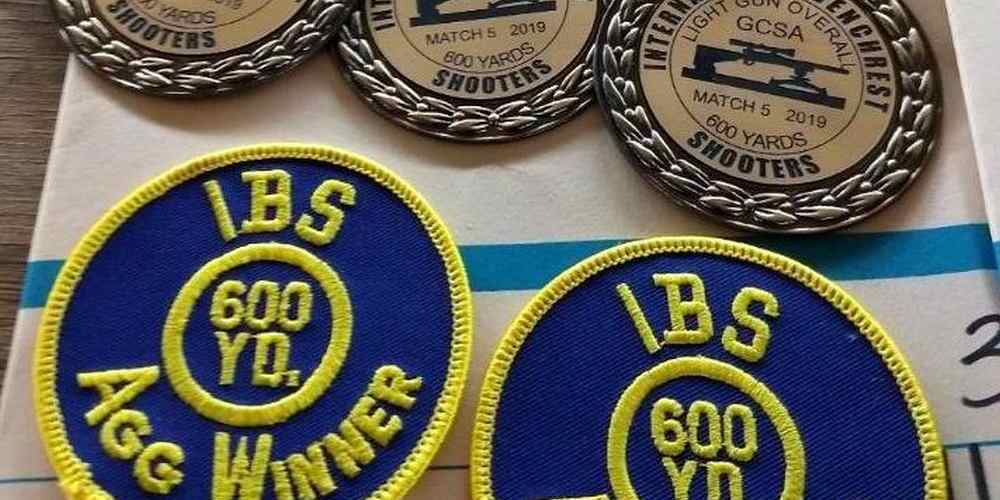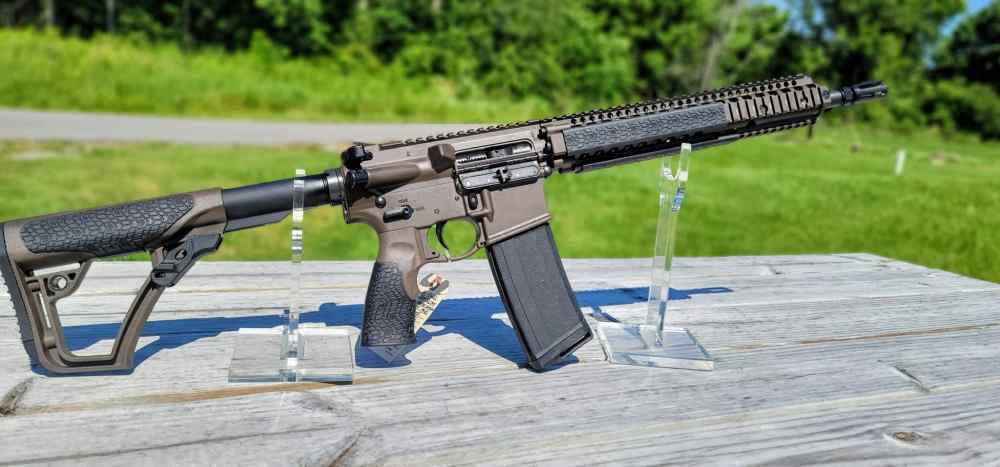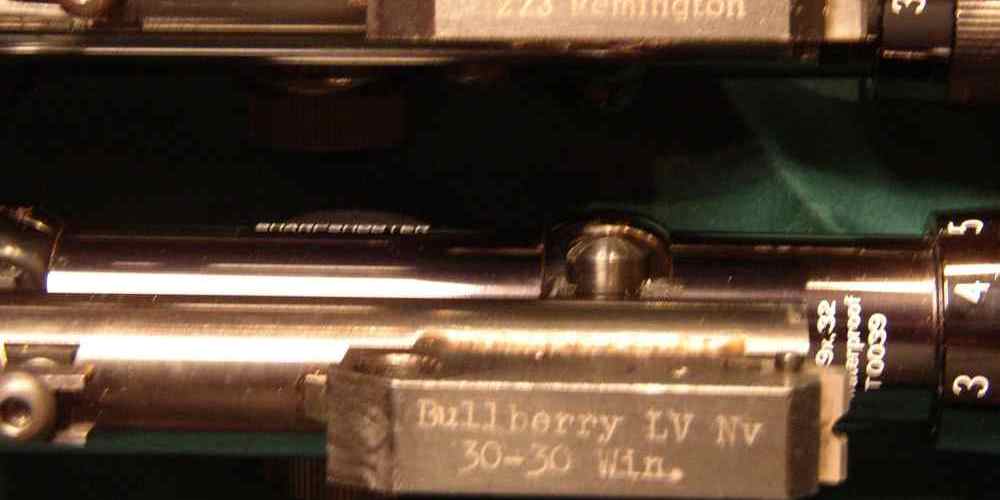“Precision meets durability in the battle of barrel manufacturing techniques.”
Pros and Cons of Cold Hammer Forged Barrels
When it comes to choosing a barrel for your firearm, there are a few different options to consider. Two popular choices are cold hammer forged barrels and button rifled barrels. Each type has its own set of pros and cons, so it’s important to understand the differences between them before making a decision. One of the main advantages of cold hammer forged barrels is their durability. These barrels are created by hammering a mandrel into a barrel blank, which compresses and strengthens the metal. This process results in a barrel that is incredibly strong and resistant to wear and tear. Cold hammer forged barrels are known for their longevity and ability to withstand high round counts without losing accuracy. Another benefit of cold hammer forged barrels is their consistency. Because the metal is compressed evenly throughout the barrel, these barrels tend to have very consistent rifling and bore dimensions. This can lead to improved accuracy and precision when shooting. Additionally, cold hammer forged barrels are often easier to clean and maintain than other types of barrels, making them a popular choice among shooters who value convenience. However, there are some drawbacks to cold hammer forged barrels as well. One of the main disadvantages is the cost. Cold hammer forging is a more expensive process than button rifling, so barrels made using this method tend to be pricier. Additionally, cold hammer forged barrels can be more difficult to customize or modify, as the metal is already compressed and hardened during the forging process. Despite these drawbacks, many shooters still prefer cold hammer forged barrels for their durability and consistency. These barrels are often used in military and law enforcement applications, where reliability and performance are crucial. In conclusion, cold hammer forged barrels offer a number of benefits, including durability, consistency, and ease of maintenance. While they may be more expensive than other types of barrels, many shooters find that the advantages outweigh the cost. If you’re looking for a barrel that will stand up to heavy use and provide reliable performance, a cold hammer forged barrel may be the right choice for you. Pros and Cons of Button Rifled Barrels
Button rifled barrels are another popular choice for shooters looking for a high-quality barrel. These barrels are created by pulling a button with rifling through a barrel blank, which cuts the rifling into the metal. Button rifled barrels are known for their accuracy and precision, making them a popular choice among competitive shooters and precision rifle enthusiasts. One of the main advantages of button rifled barrels is their accuracy. Because the rifling is cut into the metal rather than compressed, button rifled barrels tend to have very precise and consistent rifling. This can lead to improved accuracy and tighter shot groups when shooting. Additionally, button rifled barrels are often easier to customize or modify than cold hammer forged barrels, making them a popular choice for shooters who like to tinker with their equipment. Another benefit of button rifled barrels is their cost. Button rifling is a less expensive process than cold hammer forging, so barrels made using this method tend to be more affordable. This makes button rifled barrels a great option for shooters on a budget who still want a high-quality barrel. However, there are some drawbacks to button rifled barrels as well. One of the main disadvantages is their durability. Because the rifling is cut into the metal rather than compressed, button rifled barrels may not be as strong or long-lasting as cold hammer forged barrels. Additionally, button rifled barrels may require more frequent cleaning and maintenance to ensure optimal performance. Despite these drawbacks, many shooters still prefer button rifled barrels for their accuracy, affordability, and ease of customization. These barrels are often used in competitive shooting and precision rifle competitions, where accuracy is paramount. In conclusion, button rifled barrels offer a number of benefits, including accuracy, affordability, and ease of customization. While they may not be as durable as cold hammer forged barrels, many shooters find that the precision and consistency of button rifled barrels make them a great choice for their shooting needs. If you’re looking for a high-quality barrel that offers excellent accuracy and performance, a button rifled barrel may be the right choice for you.
Pros and Cons of Button Rifled Barrels
When it comes to choosing a barrel for your firearm, there are a few different options to consider. Two popular choices are cold hammer forged barrels and button rifled barrels. In this article, we will take a closer look at the pros and cons of button rifled barrels. Button rifling is a method of rifling a barrel that involves pushing a hardened steel button through the bore to create the rifling grooves. This process is known for producing very precise and consistent rifling, which can lead to improved accuracy. One of the main advantages of button rifled barrels is their accuracy. The consistent rifling produced by this method can help to stabilize the bullet as it travels down the barrel, resulting in tighter shot groups. This can be especially important for competitive shooters or hunters who need to make precise shots at long distances. Another benefit of button rifled barrels is their ease of production. This method is relatively simple and cost-effective, making it a popular choice for many firearm manufacturers. This can help to keep the cost of the barrel down, which is always a plus for budget-conscious shooters. Button rifled barrels also tend to have a longer lifespan than other types of barrels. The hardened steel button used in the rifling process can create a very durable rifling pattern that is less prone to wear over time. This can help to extend the life of the barrel and ensure consistent performance for years to come. However, there are some potential drawbacks to consider when it comes to button rifled barrels. One of the main concerns is the potential for stress and deformation during the rifling process. Because the button is pushed through the bore, there is a risk of creating uneven pressure on the barrel, which can lead to inconsistencies in the rifling. Another issue with button rifled barrels is the potential for tooling marks or imperfections in the rifling grooves. While this method is known for producing precise rifling, there is always a risk of introducing defects during the manufacturing process. These imperfections can affect the accuracy and performance of the barrel. In conclusion, button rifled barrels offer a number of advantages, including improved accuracy, ease of production, and durability. However, there are also some potential drawbacks to consider, such as the risk of stress and deformation during the rifling process and the possibility of tooling marks or imperfections in the rifling grooves. Ultimately, the decision between a button rifled barrel and a cold hammer forged barrel will depend on your specific needs and preferences as a shooter.
Accuracy and Precision Comparison
When it comes to choosing a barrel for your firearm, there are a few key factors to consider. Two popular options are cold hammer forged barrels and button rifled barrels. Both have their own unique characteristics and advantages, so it’s important to understand the differences between the two before making a decision. Cold hammer forged barrels are known for their durability and longevity. The process of cold hammer forging involves using a machine to shape the barrel by hammering it into shape. This creates a strong and uniform barrel that is less prone to wear and tear over time. Cold hammer forged barrels are often used in military and law enforcement applications where reliability is crucial. On the other hand, button rifled barrels are known for their precision and accuracy. The process of button rifling involves pulling a button through the barrel to create the rifling grooves. This results in a smooth and consistent bore that can improve the accuracy of the firearm. Button rifled barrels are often used in competitive shooting and hunting applications where precision is key. In terms of accuracy and precision, button rifled barrels have a slight edge over cold hammer forged barrels. The smooth bore created by button rifling can help to reduce bullet deformation and improve overall accuracy. This can be especially important for long-range shooting where even small deviations can have a significant impact on accuracy. However, cold hammer forged barrels are not far behind in terms of accuracy. While they may not offer the same level of precision as button rifled barrels, they are still capable of delivering consistent and reliable performance. The durability of cold hammer forged barrels can also be a major advantage in certain situations, such as high-volume shooting or harsh environments. Ultimately, the choice between cold hammer forged and button rifled barrels will depend on your specific needs and preferences. If you prioritize durability and reliability, a cold hammer forged barrel may be the best option for you. On the other hand, if you prioritize accuracy and precision, a button rifled barrel may be the better choice. It’s also worth noting that there are other factors that can impact the accuracy and precision of a firearm, such as the quality of the ammunition and the skill of the shooter. While the barrel is an important component, it is just one piece of the puzzle when it comes to achieving optimal performance. In conclusion, both cold hammer forged and button rifled barrels have their own strengths and weaknesses when it comes to accuracy and precision. understanding the differences between the two can help you make an informed decision when choosing a barrel for your firearm. Whether you prioritize durability or precision, there is a barrel option out there that can meet your needs.
Barrel Lifespan and Durability
When it comes to choosing a barrel for your firearm, there are a few key factors to consider. One of the most important considerations is the method used to create the rifling in the barrel. Two common methods are cold hammer forging and button rifling. Each method has its own advantages and disadvantages, particularly when it comes to barrel lifespan and durability. Cold hammer forging is a process in which a barrel blank is placed in a machine that hammers it into shape. This process creates a very strong and durable barrel that is resistant to wear and tear. The hammering action also compresses the metal, making it more dense and therefore more resistant to heat and pressure. This results in a barrel that is less likely to warp or deform over time. Button rifling, on the other hand, is a process in which a button with rifling grooves is pulled through a barrel blank, cutting the rifling into the metal. This process is less expensive than cold hammer forging, but it can result in a barrel that is not as strong or durable. Button rifled barrels are more prone to wear and tear, and they may need to be replaced more frequently than cold hammer forged barrels. In terms of barrel lifespan, cold hammer forged barrels generally have a longer lifespan than button rifled barrels. The dense metal created by the hammering process is more resistant to erosion and wear, meaning that the rifling in a cold hammer forged barrel will last longer before needing to be replaced. This can be an important factor for shooters who use their firearms frequently and want a barrel that will stand up to heavy use. Durability is another important consideration when choosing a barrel for your firearm. Cold hammer forged barrels are known for their durability and strength. The dense metal created by the hammering process makes these barrels less likely to warp or deform under pressure. This can be particularly important for shooters who use high-pressure ammunition or shoot in extreme conditions. Button rifled barrels, on the other hand, may not be as durable as cold hammer forged barrels. The cutting process used in button rifling can create stress points in the metal, making these barrels more prone to warping or deforming over time. This can be a concern for shooters who want a barrel that will last for many years without needing to be replaced. In conclusion, when it comes to barrel lifespan and durability, cold hammer forged barrels have the edge over button rifled barrels. The dense metal created by the hammering process makes cold hammer forged barrels more resistant to wear and tear, while button rifled barrels may be more prone to warping or deforming over time. Shooters who want a barrel that will last for many years and stand up to heavy use may want to consider investing in a cold hammer forged barrel for their firearm.
Cost Comparison and Value for Money
When it comes to choosing a barrel for your firearm, there are a few key factors to consider. Two popular options are cold hammer forged barrels and button rifled barrels. In this article, we will compare the cost and value for money of these two types of barrels to help you make an informed decision. Cold hammer forged barrels are known for their durability and longevity. The process of cold hammer forging involves using a machine to shape the barrel by hammering it into shape. This results in a barrel that is incredibly strong and resistant to wear and tear. While cold hammer forged barrels tend to be more expensive than button rifled barrels, they are often seen as a worthwhile investment due to their superior quality and longevity. On the other hand, button rifled barrels are made by cutting grooves into the barrel using a button-shaped tool. This process is less expensive than cold hammer forging, making button rifled barrels a more cost-effective option for those on a budget. While button rifled barrels may not be as durable as cold hammer forged barrels, they still offer good accuracy and performance for the price. When comparing the cost of cold hammer forged barrels and button rifled barrels, it is important to consider the value for money that each type of barrel offers. While cold hammer forged barrels may have a higher upfront cost, their durability and longevity can make them a better long-term investment. In contrast, button rifled barrels may be more affordable initially, but they may need to be replaced more frequently due to wear and tear. In terms of value for money, cold hammer forged barrels are often seen as a superior option. While they may cost more upfront, their durability and longevity can save you money in the long run by reducing the need for frequent replacements. Additionally, cold hammer forged barrels are known for their consistent accuracy and performance, making them a reliable choice for serious shooters. That being said, button rifled barrels still offer good value for money, especially for those on a budget. While they may not be as durable as cold hammer forged barrels, they can still provide good accuracy and performance at a more affordable price point. For casual shooters or those who do not require the highest level of durability, button rifled barrels can be a cost-effective option. In conclusion, when comparing cold hammer forged barrels and button rifled barrels in terms of cost and value for money, it is important to consider your individual needs and budget. While cold hammer forged barrels may offer superior durability and longevity, button rifled barrels can still provide good performance at a more affordable price. Ultimately, the best choice will depend on your specific requirements and preferences.





